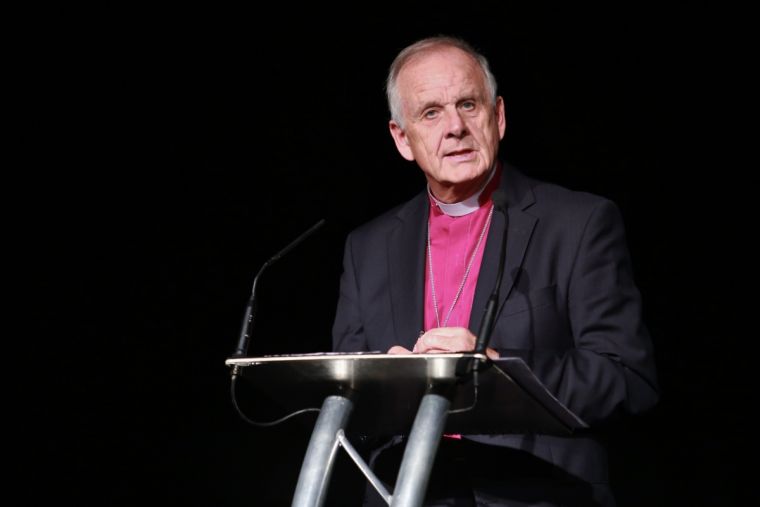Retiring Archbishop of Wales delivers parting shot to conservatives: Bible can support gay marriage
The Archbishop of Wales has argued that taking the Bible seriously can lead to supporting same-sex marriage as he defended his acceptance of LGBT relationships.
Dr Barry Morgan, who will retire in January, used his last address to the governing body of the Church in Wales on Wednesday to deliver a parting shot to conservative critics who said he had been "swayed by the liberal culture of our age" and "ignored Holy Scripture".
He argued the Bible had more than one view on LGBT relationships as the authors' stances evolved. He said it was necessary to look at the texts as a whole, and especially at the ministry of Jesus, to understand God's will.
"Taking the Bible as a whole and taking what it says very seriously may lead us into a very different view of same-sex relationships than the one traditionally upheld by the Church," he said.

Although a majority in the Church in Wales' governing synod voted for change in September 2015, the Church said it was "not yet ready to allow or bless same-sex marriages" because the level of support did not reach the two-thirds majority needed to change Church law. But a statement added that "the debate is not over" and the Welsh bishops vowed to "work for a Church in which you can be fully affirmed as equal disciples of Jesus Christ or seekers after truth".
In a pastoral letter issued after 18 months of consultations across the Church, the bishops told gay couples: "We will pray with you and for you, that together we may seek God's blessing on our lives, and for faithful discipleship."
Dr Morgan, who has spearheaded the drive for change, compared those who interpreted the Bible as being against same-sex marriage with those who used the Bible to justify slavery. He argued that as opinions within the Church changed over slavery, so they may over same-sex relationships.
"What all this amounts to is that one cannot argue that there is one accepted traditional way of interpreting Scripture that is true and orthodox and all else is modern revisionism, culturally conditioned. Scripture itself is diverse and theological views held in some biblical books are reshaped in the light of experience by other writers," he told the governing body on Wednesday.
"Given that each of the passages purported to be about homosexuality can be interpreted in more than one way, we come to the fundamental question as to whether taking the Bible as a whole, we can come to the same conclusions about committed, faithful, loving, same-sex relationships as we did about slavery.
"We are not thereby abandoning the Bible but trying to interpret it in a way that is consistent with the main thrust of the ministry of Jesus, who went out of His way to minister to those who were excluded, marginalised, and abandoned by His society because they were regarded as impure and unholy by the religious leaders of His day, either because of their gender, age, morality or sexuality. Taking Holy Scripture seriously means paying attention to Jesus' ministry of inclusivity."
The Archbishop concluded his address by quoting from Amazing Love, a book that urged Christians to embrace LGBT relationships. He said people flourish in committed relationships with one other person. "Those of us who were or are married have found that to be the case," he said. "Why would we want to deny such a possibility for those who are attracted to their own gender?"
The address is likely to enrage conservative Anglicans who see Biblical opposition as the key argument against accepting same-sex marriage.
Ian Paul, a prominent conservative blogger and member of the Archbishops' Council, told Christian Today Morgan's comments were "really quite extraordinary".
He said: "Very many scholars of the Bible, including those who do not agree with the Church's traditional teaching on sexuality, would be astonished by his statement that 'the Bible has more than one view on homosexuality'. The few texts that are directly relevant are uniformly negative.
"The fact that these verses 'can be interpreted in different ways' demonstrates nothing; every verse in the Bible can be interpreted in different ways – the question is whether such interpretations stand up to scrutiny."
He went on to say the comparison with slavery was "odd". He accused Morgan of "offering precisely the kind of misreading that he is protesting that he is not".
Paul added: "Taking the Bible 'seriously' is fairly meaningless unless we explain what we are taking it 'seriously' to be."











